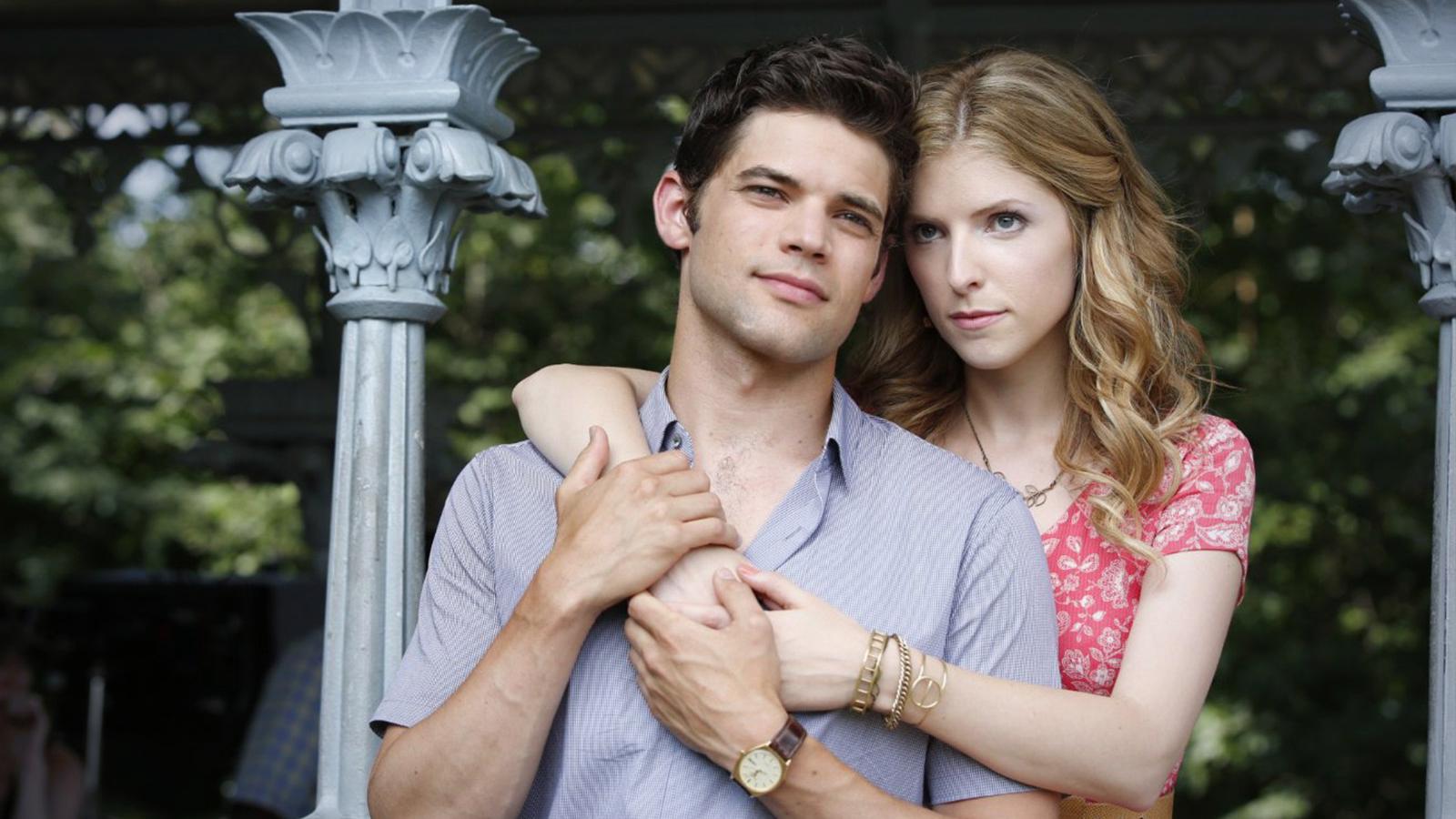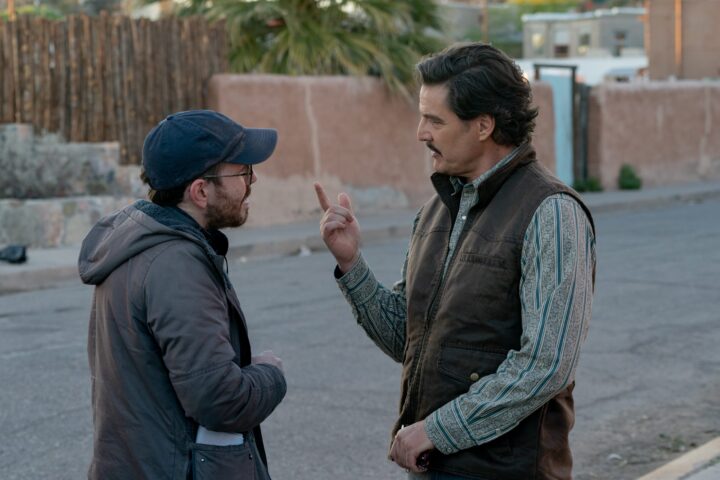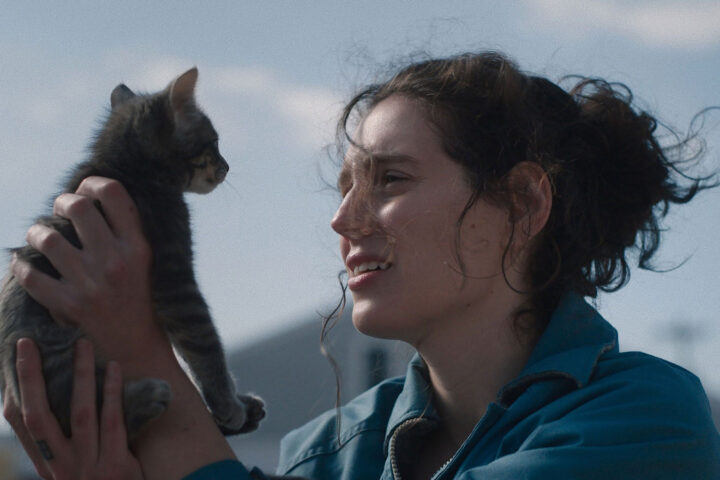Prolific Hollywood screenwriter and director Richard LaGravenese’s new picture, the bittersweet The Last Five Years, based on the off-Broadway musical and starring Anna Kendrick and Jeremy Jordan as young Manhattan transplants who fall into and out of careers, love and life together, was a labor of love for its ambitious director, and one he’d spent years dreaming of mounting for the screen.
LaGravenese, whose screenwriting resume includes high-profile studio pictures like The Fisher King, Beloved, The Horse Whisperer and The Bridges of Madison County, is also the writer/director of Living Out Loud, Freedom Writers, P.S. I Love You and Beautiful Creatures, and arguably one of the most successful of all contemporary movie scribes.
As I mentioned to LaGravenese when we recently sat down to chat, I have many a time been haunted by particular scenes from his canon, not the least of which being Meryl Streep’s denouement in the elegiac finale to Clint Eastwood’s Bridges, a textbook example of tension and feeling, all but overwhelming.
I’ve also admired his unabashed reverie for his female characters, notably Hilary Swank as inspirational teacher Erin Gruwell in Freedom Writers, a movie of quiet dignity with a plainspoken moment where Swank’s compassionate educator informs an underprivileged student of his place in her classroom and world, with one simple line: “You are home.”
LaGravenese kindly agreed to a career interview of sorts, exploring highs and lows of both his personal and professional worlds, and some candid observations on his road from screenwriter to director and some of his most memorable movie experiences.
The Last Five Years is your first musical. Why this one?
I loved it so much. I love musical theater. I had never seen the play, but a friend of mine, Todd Graff, gave me the score and I fell in love with it. I didn’t know that it was a monologue musical to the audience, rather than to each other. In my head I connected to the music and started imagining the scenes. I was doing regular screenwriting work and P.S. I Love You at the time, and Sherie Rene Scott came to audition—she was the original Cathy, and on the CD. And I had always fantasized about doing this generation’s The Umbrellas of Cherbourg. That was the idea, and in between all my jobs I was working on this for me.
Anna Kendrick is delightful. We know she can sing, and well, but she’s particularly winning in this role.
She was nominated for a Tony when she was about 12. She actually went in to audition for Into the Woods when we were rehearsing for this, so she shot it after. And I cast her before Pitch Perfect came out, so that was just a lucky break for us.
Did you audition both actors for their singing voices?
No, the casting process was that if I found the right actor, (composer) Jason Robert Brown then had to approve that they could sing the score. Then on set, Jason’s wife, Georgia Stitt, who is also a composer, would warm them up each day. And after each take, if I liked it, I would look to her to see if there was anything pitchy or this or that, then I would decide if I would print it or fix it later. But I was directing them as I would if they were talking. I treated the songs like they were playable scenes, rather than songs.
What is your favorite song in the film? For me, it’s I Can Do Better Than That.
It varies. Before I started it was If I Didn’t Believe in You, but I actually came to like Schmuel. It knocks me out. And I very much love I’m a Part of That.
The Fisher King was one of your earliest screenplays and remains a modern classic. What are your thoughts on that experience?
It was a blessed experience. I was very lucky. I remember Terry Gilliam sitting on the floor of his hotel room in New York and telling me to throw out all of the studio changes and put back my original stuff. I thought, “God, I’ve found the greatest guy.” I remember Robin (Williams) and Jeff (Bridges) being so supportive and respectful of the script. On one of the first days and after a scene, Robin poked his head up and asked me if it was good. And I turned my head thinking, “Is he looking at me?” And Terry told me that he usually storyboarded everything and how excited he was this time because it was the first time he didn’t do that. He let the actors stage it and he would come up with camera angles based on staging. I remember location scouting in Grand Central Station and he said, “Wouldn’t it be funny if everybody started dancing?” I said, “Fantastic idea.” He said, “No, I don’t want it to be a Terry Gilliam movie.” I said, “I want that idea!” He had just come off The Adventures of Baron Munchausen and he was wounded from that experience.
I have very vivid memories of scenes you’ve written. For example Scarlett Johansson confiding her insecurities in Robert Redford in The Horse Whisperer. And the powerful scene between Kimberly Elise and Thandie Newton in Beloved. Was that experience difficult in that it didn’t find an audience?
No, no, no. Beloved was a heartbreaker in how it turned out, but the creating of it was very special. That was the first one where I didn’t create- I was just interpreting Toni Morrison, and she wrote me the most beautiful note afterwards that she had thought it was impossible, but that I had succeeded. That meant a lot to me. The book was so beautifully written that to me it was about translating it; what became scenes and what didn’t, and I approached it that way. The other ones I had to work on a little bit more.
And then there’s the extraordinary scene near the end of The Bridges of Madison County, involving a truck, rain and a decision. Tell me about that.
I’ve very proud of it. With bestsellers, you want to give the audience what they came for but also not be predictable. And I know it worked, because people told me that when she reaches for the handle, they heard people in audience asking, “Oh my God, is she going to go with him?” And then she doesn’t. I added the stoplight and the necklace he has around the thing. So it’s giving the audience what they are expecting, but changing it just so that they are invested and sitting up in their seats. And inventing a scene- the scene in the kitchen is not in the book. I remember telling them that an Italian woman doesn’t have great sex for four days and then say, “I know you have to go, Marlboro man.” She’d be fucking pissed off! The problem with the story was that they didn’t fight, and so I wrote that scene in the kitchen where she is really upset, where she is making him breakfast and she goes, “Now what? Are you just going to leave?” And they have that beautifully acted scene which was not in the book. It made her more real.
Your directorial debut, Living Out Loud, is a little character gem. You crafted three really interesting characters for Holly Hunter, Danny De Vito and Queen Latifah. What was it like being a first-time director?
It was an extraordinary but very tough experience. I did not have an easy first experience as a director, but I am very proud of the movie. It was very personal. That character that Holly plays is somewhat based on me, and Danny is based on my dad. I’ve learned so much since then about what I can and can’t ask for. The problem I had as a screenwriter was that the muscle was so overdeveloped and I was too collaborative; I didn’t lead enough. And as a result, I had some power struggles that I had to man up to and take the reins back from. For the most part, it was a life changing experience.
You also write very complex women, which is not common for male screenwriters.
I grew up in a house of women. Sometimes I wonder if female writers resent me. That may just be my paranoia. As a boy, I remember watching old movies and I was always attracted to female characters—Rosalind Russell, Bette Davis, Barbara Stanwyck. They were just the ones I wanted to see. And Elizabeth Taylor. I just saw Who’s Afraid of Virginia Woolf? again.
Speaking of that picture, what’s your take on Sandy Dennis in that film? Quite offbeat, to say the least.
Only she can do what she does! She is fantastic. And also Richard Burton is fantastic; such an underrated performance. He was so amazing.
You’ve worked with Hilary Swank twice, in both Freedom Writers and P.S. I Love You, both of which you wrote and directed. How did you come to Erin Gruwell’s story for Freedom Writers?
After Living out Loud, I went into a tailspin. I battle depression; I’m diagnosed. That was the beginning of realizing it. After Living Out Loud came out, I couldn’t write for about nine months. That was the first time it had ever happened to me. I was in a very depressed state and I started therapy. I am seeing the same psychiatrist now that I was then. It’s been 15 years. There was a period from Living Out Loud to Paris je t’aime—about a seven or eight year period—where I did not have a movie with my name on it. I was only doing high-paying rewrites on big movies, and you have to be careful about that because it’s like crack—you can get addicted to that and lose your soul. I read (The Freedom Writers Diary) and called up Stacey Sher and said I wanted to do something that meant something, and it was a like a lifesaver to me. It got me out of myself, and Erin Gruwell and I became really good friends and I got to know all of the freedom writers. It almost was a way to heal.
And then there was P.S. I Love You, a movie that didn’t get a fair shake.
The experience of making it was wonderful. I got to shoot in Ireland and have this wonderful cast. It’s not the kind of movie I want to make again.
A romantic comedy?
Yes. I really don’t want to do that. Oddly enough, it was a success at the box office, which helped me a great deal for me. But I think for me it was a sign to stop writing and adapting that kind of story. I was done. That was the last.
And recently, you wrote the first screenplay for Unbroken. What was your connection?
My dad was a World War II veteran and the son of Italian immigrants. He was in an Asian-Pacific company. He was a lot like Louis. He came back from the work crippled; his leg had been cut open because he had gangrene. He was a great athlete and came back somewhat crippled. So I did it for him. I loved the book, and I met with Louis. He was a wonderful man. It meant a lot to me. I was the first adapter. And I wrote it for (director) Francis Lawrence. And then Francis got The Hunger Games, so he left the project. So it sort of died at Universal. And then I moved on to something else.
And then the producer kept it going with William Nicholson. I don’t know what the problems were that the studio had with it, but there was no director. I don’t know how much longer after, but Angelina Jolie came in. And then they worked with the Coen brothers to cut-and-paste it. It was an odd feeling because I’ve never worked like this before where I’ve done something I was very close to, and then it got made without me involved with it.
What is the best part about your job?
Getting in the zone. I think it’s the hardest part, having directed and written. I think writing is still harder, because directing you have limits and time. You have something to work off from. You’re grounded in some way. Whereas a blank page is like staring into a wormhole and it’s the hardest part of it. But when you’re in that zone, and suddenly you look up and six hours has passed and it felt like six minutes… That’s incredible thing when you read something that you’ve created and it almost feels like it didn’t come out of you. Like it came from someplace else. I can’t describe it, but that’s a great feeling.



